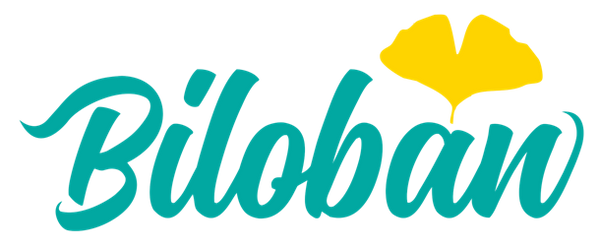When do babies start talking?
Your baby learns to talk during his first two years of life. Long before he utters his first word, he's learning the rules of language and how adults use it to communicate.
He'll begin by using his tongue, lips, palate, and any emerging teeth to make sounds (cries at first, then "ooh's" and "ahh's" in the first month or two, and babbling shortly thereafter). Soon those sounds will become real words – "mama" and "dada" may slip out and bring tears to your eyes as early as 6 months.
From then on, your baby will pick up more words from you and everyone else around him. And sometime between 18 months and 2 years, he'll begin to form two- to four-word sentences. As your baby makes mental, emotional, and behavioral leaps, he's increasingly able to use words to describe what he sees, hears, feels, thinks, and wants.

How babies learn to talk
Here's how you can expect your baby's talking to progress. If she's being raised in a bilingual environment, language milestones usually occur at about the same time in both languages.
In utero
Many researchers believe the work of understanding language begins while a baby is still in utero. Just as your unborn baby gets used to the steady beat of your heart, she tunes into the sound of your voice and can discern yours among others.
Birth to 3 months
Crying is your baby's first form of communication. And one cry doesn't fit all: A piercing scream may mean she's hungry, while a whimpering, staccato cry may signal that she needs a diaper change. As she gets older, she'll develop a delightful repertoire of gurgles, sighs, and coos.
As for her ability to understand language, she's starting to recognize what words sound like and how sentences are structured as she listens to those around her.
4 to 6 months
At this stage, your child starts to babble, combining consonants and vowels (such as "baba" or "yaya"). At about 6 months she can respond to her name.
You may hear the first "mama" or "dada" now and then too. Though it's sure to melt your heart, your baby doesn't equate those words with you quite yet. That comes later, when she's almost a year old.
Your baby's attempts at talking will sound like stream-of-consciousness monologues in another language with endless words strung together. Vocalization is a game to your baby, who's experimenting with using her tongue, teeth, palate, and vocal cords to make all sorts of funny noises.
At this stage, babbling sounds the same, whether you speak English, French, or Japanese in your home. You may notice your child favoring certain sounds (like "ka" or "da"), repeating them over and over because she likes the way they sound and how her mouth feels when she says them.
7 to 12 months
When she babbles and vocalizes now, your baby sounds as if she's making sense. That's because she's trying out tones and patterns similar to the ones you use. Foster her babbling by talking and reading to her.
13 to 18 months
Now your child is using one or more words, and she knows what they mean. She'll even practice inflection, raising her tone when asking a question by saying "Up-py?" when she wants to be carried, for example. She's realizing the importance of language as she taps into the power of communicating her needs.
19 to 24 months
Though she probably says fewer than 50 words, your child now understands much more than she can say. And she picks up more words every day, so watch your language! She may even string two words together, making basic sentences such as "Carry me."
By the time she's 2, your child may use two- to four-word sentences and sing simple tunes. As her sense of self matures, she'll start talking about what she likes and doesn't like, what she thinks and feels. Pronouns may confuse her, which is why she might say "Baby throw" instead of "I throw."
25 to 36 months
Your toddler may struggle for a while to find the appropriate volume to use when talking, but she'll learn soon enough. She's also starting to get the hang of pronouns, such as "I," "me," and "you."
Between ages 2 and 3, your child's vocabulary continues to expand and she understands most of what you say to her. She'll string nouns and verbs together to form simple sentences, such as "I go now."
By the time your child turns 3, she may be a pretty sophisticated talker. She'll be able to carry on a sustained conversation and you'll be able to understand most of what she says. She'll even oblige when you ask her to do more than one thing at a time. ("Get the book and put it on the bookshelf.")
How to help your baby talk
You can help your child's language skills along by providing a rich and nurturing communication environment. The most important things to do:
Talk. You don't need to chatter nonstop, but speak to your baby whenever you're together. Describe what you're doing, point things out, ask questions, and sing songs. (Although using clear, simple speech is okay, resist the temptation to coo and babble. Your child learns to speak well by hearing you speak well.)
Read. Reading to your child is a great way to expose him to new vocabulary, the way sentences are put together, and how stories flow. As a baby he'll delight in the sound of your voice, as a toddler he'll enjoy the stories and pictures, and by the time he's a preschooler he may even jump in to tell you what's going on in a book.
Listen. When your child talks to you, be a good listener – look at him and be responsive. He's more likely to speak up when he knows you're interested in what he's saying.
What to do if your baby doesn’t talk
You're the best person to gauge your child's speech development. If she shows any of the signs listed below and you feel concerned, you may want to discuss the possibility of a language delay or hearing problem with your child's doctor.
Your child's doctor may refer your child to a pediatric speech-language pathologist for an evaluation. (A searchable directory of certified therapists can be found on the American Speech-Language-Hearing Association's website.)
Alternatively, your doctor's office, daycare provider, or local school might be able to direct you to an early intervention program in your area – usually coordinated through the county or public school system – that provides free screening for language problems. Some signs to look out for:
6 to 12 months
advertisement | page continues below
Your baby isn't making (or even attempting to make) any sounds or eye contact with you, doesn't make vowel sounds ("ah," "eh," "oh"), doesn't respond to her name or sounds around her at 6 months, doesn't babble at 9 months, or doesn't say single words (including "mama" or "dada") at 12 months.
13 to 18 months
Your baby doesn't point to show things to you, doesn't gain new words, doesn't have at least six words by 18 months, or loses language skills she once had.
19 to 24 months
By the age of 24 months, your child doesn't point to body parts, can't follow simple instructions, can't copy words and actions, or uses only single words.
advertisement | page continues below
25 to 36 months
By the age of 36 months, your child hasn't started to use two- or three-word phrases, doesn't follow simple instructions, speaks incoherently, or is difficult to understand.
If your child stutters, it doesn't necessarily signal a problem. Stuttering is a normal phase, especially when her ability to communicate is expanding so rapidly. Sometimes she'll be so excited to tell you what's on her mind that she can't get the words out fast enough.
But if her stuttering continues past the age of 4, or if it's bad enough that she tenses her jaw or grimaces in an effort to get the words out, talk with her doctor about it. Most schools will test and help to evaluate your child if stuttering persists for more than six months.
After your baby talks – what’s next?
As your child grows, he'll become more of a chatterbox. There might be moments when you long for those peaceful days of speechlessness, but for the most part, you'll delight in his play-by-plays of what happened at preschool, what he thinks about dinosaurs, and his descriptions of what his best friend likes to eat.
By age 4, your child can speak in sentences of five or six words. He'll begin to understand and use some of the basic rules of grammar.
He'll tell stories and speak well enough for strangers to understand him. He'll also know his first and last name. Oh, and get ready for every "why" question under the sun.
Biloban is a manufacturer of baby bedding products. Our aim is to offer super comfortable baby bedding products in affordable price. We have the best Pack N Play mattress pad. Our products can help your baby sleep well.
If you are interested, you can click this site to buy them. http://www.biloban.com/







